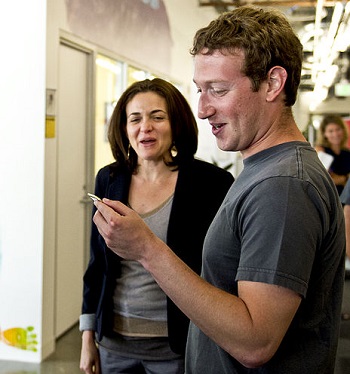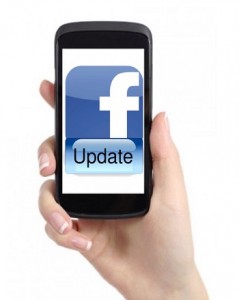The creator of the social network is working hard to fight growing accusations of its role in the election results.
Amidst a rapidly rising body of criticism against Facebook social media marketing, Mark Zuckerberg insists the network isn’t to blame for Donald Trump’s victory. Critics claim that viral fake pro-Trump news stories on Facebook led to the Republican’s election win.
Zuckerberg has responded quite forcefully, saying that he feels the accusation is a “pretty crazy idea.”
Speaking onstage at a recent conference, Zuckerberg addressed the thought that Facebook social media marketing contributed to Donald Trump’s election. “Personally,” he said, “I think the idea that fake news on Facebook, which is a very small amount of the content, influenced the election in any way—I think is a pretty crazy idea. Voters make decisions based on their lived experience.”
Zuckerberg also went on to ask “Why would you think there would be fake news on one side and not the other?”
That has not assuaged the critics insisting Facebook social media marketing doesn’t properly filter fake news.
 Many claim that as the largest social media platform worldwide, viral hoax news posts shared there may have helped Trump to win. The reason, say many, is that Facebook either refuses or is not able to contain the spread of those fake news articles.
Many claim that as the largest social media platform worldwide, viral hoax news posts shared there may have helped Trump to win. The reason, say many, is that Facebook either refuses or is not able to contain the spread of those fake news articles.
Moreover, BuzzFeed News conducted an investigation earlier in 2016 which examined the most right-wing extremely partisan publications published by Facebook pages. They determined that 38 percent of the news shared by those sources was misinformation. That said, when examining the same type of page on the left-wing side, misinformation occurred considerably less: 20 percent of the time.
Those figures may not sound too problematic, but BuzzFeed News also identified another trend with this form of Facebook social media marketing. The stories with the lowest accuracy were the ones BuzzFeed found to generate the largest number of shares and reactions (such as Likes). Inaccurate stories on Facebook pages greatly outperformed publications shared on Facebook pages from more mainstream political news sites. Over the last few months, a rash of hoax news sites were created in order to take advantage of this trend.

 to rivals such as Twitter, iAd at Apple, and Google, which are direct competition within the
to rivals such as Twitter, iAd at Apple, and Google, which are direct competition within the 